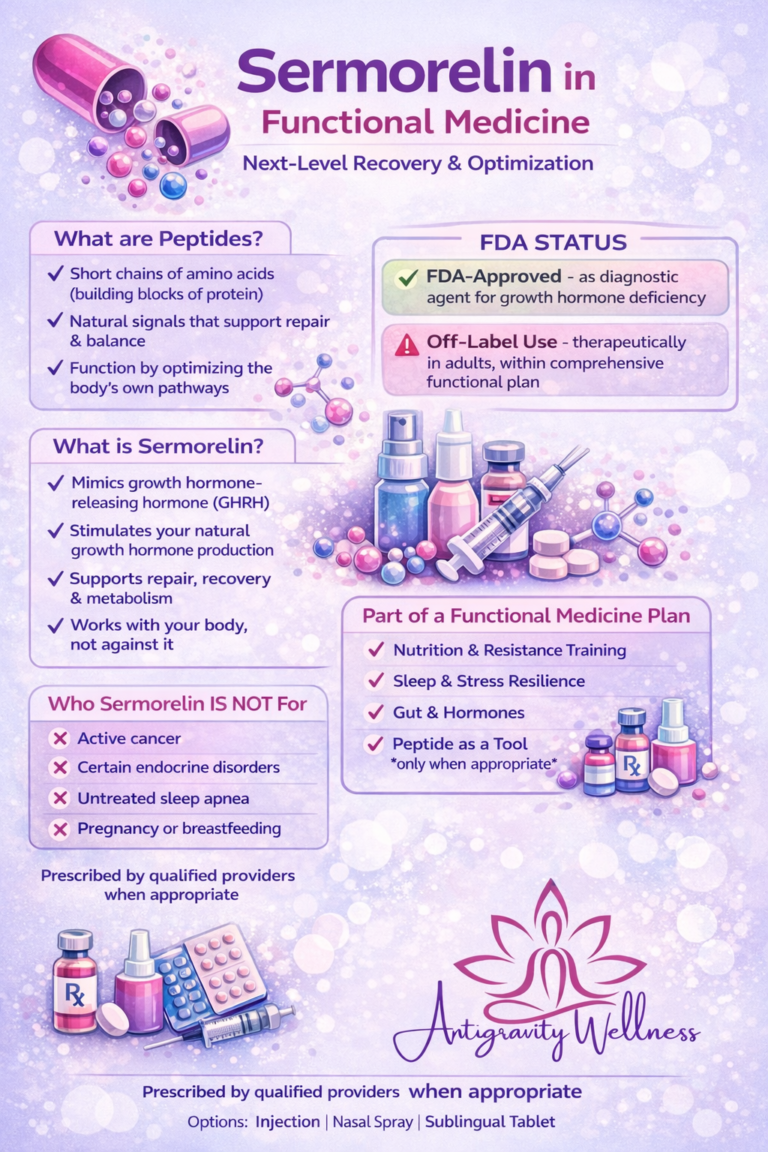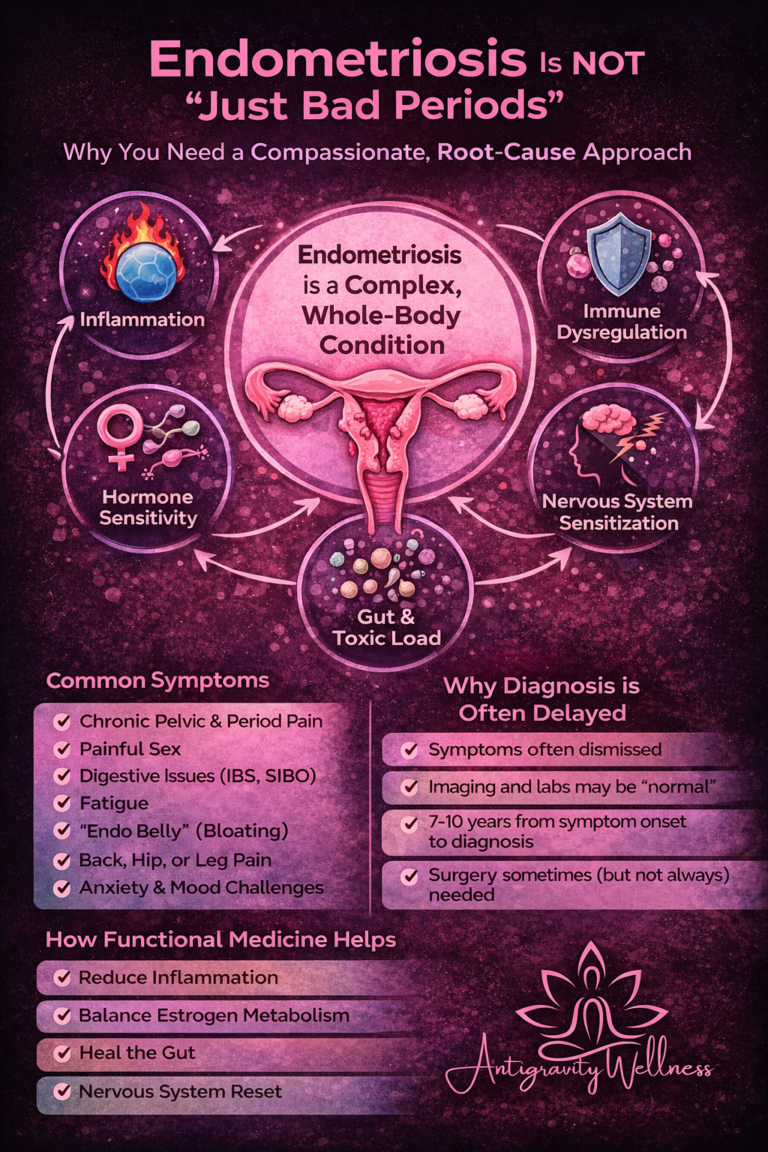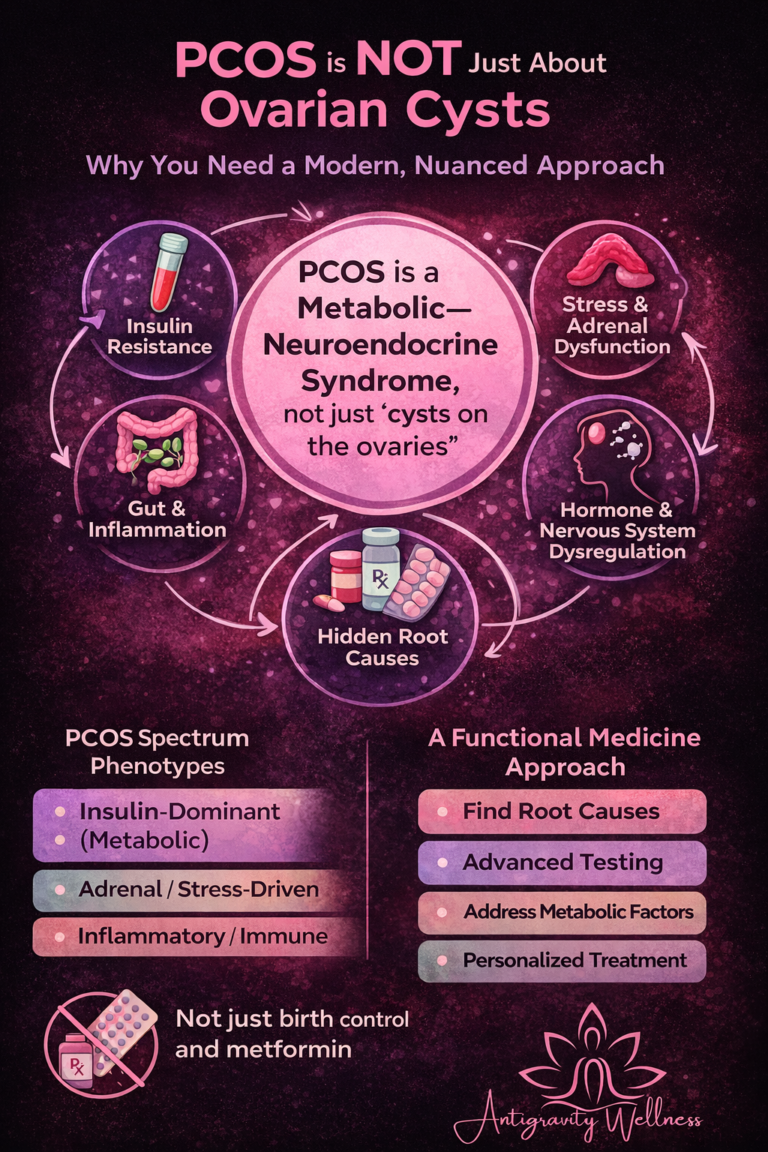
Meet Sarah: She’s 45, juggling work, family, and her changing body. Years ago, she was diagnosed with uterine fibroids and put on birth control pills to manage heavy bleeding. At first, things were manageable. But now, despite still being on birth control, she’s experiencing hot flashes, night sweats, mood swings, low libido, and terrible sleep. She’s frustrated, confused, and wondering:
“Can I stop my birth control? Will the Mirena IUD protect me from fibroids returning? Can I safely switch to BHRT for these symptoms?”
The answer? Yes—with a thoughtful, personalized approach.
🔍 What You Need to Know About Fibroids and Hormones
Fibroids are non-cancerous growths of the uterus that often develop in response to estrogen stimulation. They tend to shrink after menopause when estrogen levels naturally decline. But during perimenopause, estrogen levels fluctuate wildly—and sometimes even spike—fueling fibroid growth and breakthrough bleeding.
That’s why many women are placed on hormonal birth control to try and stabilize those levels. However, birth control doesn’t address all perimenopausal symptoms and may even worsen some (like mood swings or low libido).
So what if you want to get off the pill, especially after 40, but still need fibroid management, bleeding control, and hormone balance?
That’s where the Mirena IUD + BHRT (bioidentical hormone replacement therapy) can be a game-changer.
💡 Why Consider the Mirena?
The Mirena IUD releases a small, local dose of levonorgestrel, a synthetic progestin, directly into the uterus. It’s FDA-approved for:
- Reducing heavy menstrual bleeding
- Preventing pregnancy
- Providing endometrial protection when using estrogen therapy
It also helps stabilize the uterine lining in women with fibroids—without the high systemic hormone levels of oral birth control.
But here’s the catch: Mirena doesn’t address systemic symptoms like hot flashes, night sweats, or mood changes.
🔄 Where BHRT Comes In
Bioidentical hormone therapy, when used safely and appropriately, can relieve:
- Hot flashes
- Night sweats
- Poor sleep
- Anxiety and mood swings
- Low libido
- Brain fog
- Vaginal dryness
- Bone loss
When combined with a Mirena IUD, you can get the best of both worlds—uterine protection from the IUD, and symptom relief and full-body hormone balance from BHRT.
✅ Is It Safe to Use BHRT with Mirena?
Yes. In fact, the Mirena can eliminate the need for separate oral progesterone for uterine protection in many women using estrogen replacement. But if you’re also struggling with mood or sleep issues, you may still benefit from adding oral micronized progesterone.
Here’s a helpful chart to summarize:
| Use Case | Is Oral Micronized Progesterone Needed? |
| Birth control only | ❌ No, Mirena is enough |
| HRT with estrogen | ✅ Yes, if not using Mirena; Mirena may be enough alone |
| Mood/sleep/anxiety support | ✅ Yes, Mirena won’t help here |
| Perimenopause hormone balance | ✅ Often helpful when added |
🌿 At Antigravity Wellness, We Take a Whole-Systems Approach
We don’t guess—we test, monitor, and tailor every plan to the individual woman.
When working with women like Sarah, we:
- Order comprehensive functional labs (including hormones, thyroid, vitamin D, insulin, and inflammatory markers)
- Evaluate history (including fibroids, birth control use, IUDs, and hormone symptoms)
- Create customized hormone plans (including Mirena + BHRT protocols)
- Monitor for symptom control, safety, and long-term health risks
- Include lifestyle, supplement, and nutrition strategies to support hormone detox, gut health, and inflammation
We understand the risks and benefits of BHRT in the context of fibroid history, and we practice evidence-based, root-cause medicine to optimize your hormone health—safely.
💬 Ready to Explore Your Options?
You don’t have to suffer through this season of life. If you’re considering stopping birth control, switching to Mirena, or exploring BHRT, we’re here to help you figure out what’s right for you.
Book your brief initial consult today to learn more and get started:
👉 Schedule your consult now
📌 Medical Disclaimer:
This blog is for educational purposes only and is not intended to diagnose, treat, or replace medical advice from your healthcare provider. Always consult with a qualified medical professional before starting or changing your hormone therapy.
📚 References:
- Jacques Donnez. Uterine fibroid management: from the present to the future. 2016. https://pmc.ncbi.nlm.nih.gov/articles/PMC5853598/
- Baber RJ, et al. IMS recommendations on women’s midlife health and menopause hormone therapy. Climacteric. 2022. https://pubmed.ncbi.nlm.nih.gov/26872610/
- American College of Obstetricians and Gynecologists. Practice Bulletin No. 228: Management of Symptomatic Uterine Leiomyomas. 2021. https://pubmed.ncbi.nlm.nih.gov/34011888/
- S Suhonen. Endometrial effect of transdermal estradiol and progestin ST-1435 in postmenopausal women. 1992. https://pubmed.ncbi.nlm.nih.gov/1601141/
- Jaya Mehta. Risks, Benefits, and Treatment Modalities of Menopausal Hormone Therapy: Current Concepts. 2021. https://pmc.ncbi.nlm.nih.gov/articles/PMC8034540/




